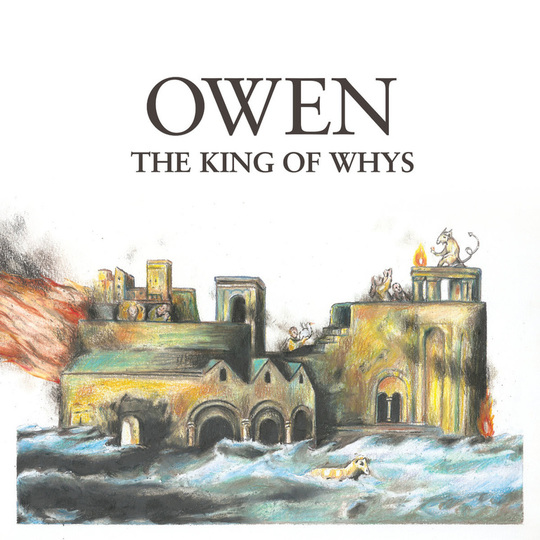Owen has been the long-term solo alias of multi-instrumentalist and 'emo' pioneer Mike Kinsella (American Football, Cap'n Jazz, Owls, Joan of Arc) but is perhaps his most underrated project. The Kinsella name has been synonymous with Chicago's indie-rock scene ever since Mike and his brother Tim started the explosive, scatty wunderkinds Cap'n Jazz back when they were teenagers in the early Nineties. In general, it is Tim's projects which receive the most attention due to his erratic writing style and yelped, indistinguishable voice, more akin to those original glory days, in his acts Owls and Joan of Arc.
Mike, however, has always been the more conventional writer of the two brothers with his softer vocal and musical style, routinely seen in his traditionally acoustic singer-songwriter mode as Owen. And yet, to reduce the Owen project to just that would be doing it a disservice. Yes, much of Owen's material start off as bedroom acoustic recordings, but Kinsella's writing style is far from conventional, consistently playing with layers and form to challenge the traditional 'folk' musician mode.
In his career, this is most comparable to his crowning achievement to date: American Football's debut and only full-length self-titled album released back in 1999. While they were a definite three-piece band, Mike Kinsella showed his unashamedly heart-on-sleeve talent on that record, and after starting Owen shortly after American Football's demise, this can be seen as his maturing of what he started back in 1999.
Owen however, has never really recaptured the attention of American Football's much-fevered record, perhaps due to the projects more subtle and mature nature. The difference with Owen's ninth record The King of Whys though is that it is the first (original) Owen album in three years after a break to complete the highly successful American Football reunion tour. Therefore, there has never been a better time for Kinsella to re-open the Owen project, given an older, or, potentially, entirely new generation has been exposed to his work from American Football's tour.
And indeed, The King of Whys feels more like an American Football record than any other Owen project to date. This is largely because Kinsella recruited the help of S. Carey (who supported American Football on their reunion tour) who assembled a small band of accompanying players for Kinsella's arrangments, in Cary's base of Eau Claire, Wisconsin, taking Kinsella out of his native Chicago for the first time, who make Owen feel like a full band for the first time.
For instance, while album opener 'Empty Bottle' opens with Kinsella's guitar strummed at half-time, the assembled band slowly build layers until the track's explosive crescendo, all in the space of four-and-a-half minutes, driven by Kinsella's affecting voice meaning lines such as "You've got a lot of nerve" really resonate by the track's end. Elsewhere, Kinsella seemingly references American Football track 'Letters & Packages' on the gorgeous 'Lovers Come and Go': "I meant what I said, you're too young to love me, like you do."
This isn't to say the material is drastically different, the music and lyrics are still unmistakably Kinsella's, but it does add an extra layer to the project which occasionally left Owen's previous output a little dry. Kinsella gets to bring his blend of everyday reflection and themes with dry humour - such as in 'Sleep is a Myth' - "Don't worry about the money / we'll get by, or we won't" - to a gorgeously arranged yet understated backing band who compliment Kinsella's voice and guitar perfectly.
Although there is nothing world-beating here, Kinsella has been quietly plugging away at this project for over a decade now, and as he approaches middle-age, may well have struck a formula that propels his Owen project into the stratosphere of other highly regarded midwest-American contemporaries Bon Iver, Sufjan Stevens or Tallest Man on Earth. Regardless, one can be safe in the knowledge that the Kinsella brothers will always be working on something, and given their terrific hit-rate, regardless of mainstream success or attention, it is never likely to disappoint.
-
7Adam Turner-Heffer's Score























